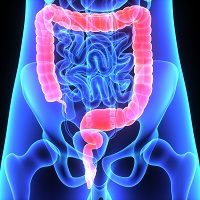Article
Interleukin-21 Linked to Development of Ulcerative Colitis
Author(s):
Study results indicate that elevated levels of interleukin–21 may play a role in the pathogenesis of ulcerative colitis.

A study in the Central European Journal of Immunology suggests that elevated levels of interleukin—21 (IL–21) may play a role in the pathogenesis of ulcerative colitis (UC).
UC is a common form of inflammatory bowel disease (IBD) with an etiology that has proven elusive. Earlier research has suggested that abnormalities involving the cellular mechanisms of immune modulation, such as the T helper 1 (Th1) bias, the decreased number or defective suppressive function of regulatory T cells, and colonic epithelial cell damage by cytotoxicity T lymphocytes contribute to the development of UC, but the reason for these abnormalities remains unknown.
T cells are broadly classified as either helper T cells (Th cells, CD4+) or cytotoxic T cells (Tc cells, CD8+). According to the researchers, “In recent years, a distinct T-cell subset, termed Th17 cells, has also been identified and seems to play key roles in the activation of neutrophils and immunity to bacteria, particularly at mucosal surfaces. IL-17, also termed IL-17A, is the signature cytokine of Th17 cells.”
The authors also noted that, “The decision by the immune system to drive naive T cells in a certain functional direction is influenced not only by the antigen type and concentration but also by signals that act synergistically or antagonistically, through positive or negative feedback loops, to activate or inhibit specific T-cell lineage programs. Skewing of responses toward inflammatory Th1, Th2 or Th17 pathways and away from regulatory T-cell pathways might be responsible for the initiation and progress of immune-mediated diseases.”
The current study involved 15 females and 11 males with an age range of 19-58 years and a median age of 38 years with a diagnosis of UC via clinical, endoscopic, histological, and/or radiological criteria. Infection or the presence of parasites was excluded by stool culture and microscopic examination.
The disease activity of active UC was determined using a grading scale including clinical and para-clinical variables. Twenty normal subjects without any appearance of colonic inflammation or tumor under endoscopy were included as a control group.
Intracellular cytokines were studied by flow cytometry to reflex the cytokine-producing cells. Interleukin-21 was expressed on CD3+CD8—T cells by flow cytometry. The level of IL-21 was significantly increased in UC patients (129.6 ±97.1 pg/ml) compared to controls (72.0 ±29.0 pg/ml, p < 0.05). This result was consistent with earlier studies.
The researchers concluded that, “...Our data demonstrate elevated IL-21 in UC patients and its positive correlation to Th17 cells, indicating a possible role of IL-21 in UC and blockade of IL-21 may be a reasonable therapeutic strategy for [treating ] UC.”





